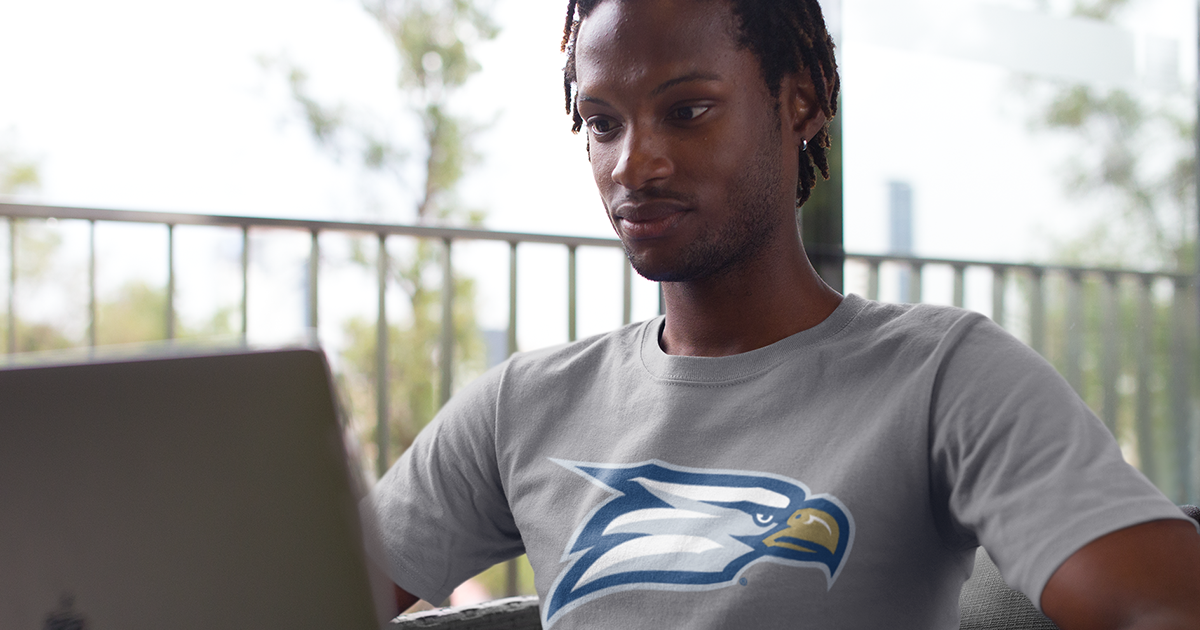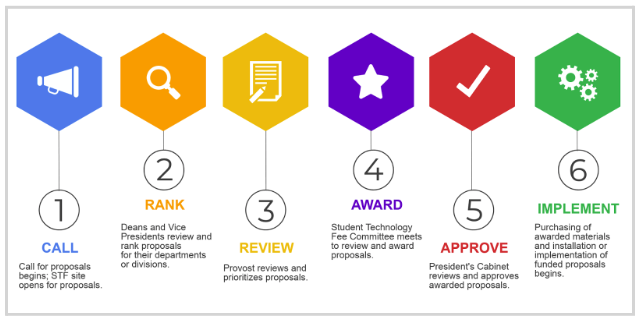Student Technology Fee Proposals
STF Proposals are now closed. Proposals were accepted from
November 1, 2022 through December 9, 2022. Please monitor for future calls for proposals.
Your Technology Fees at Work
At Georgia Southern, we use the STF Proposal Process to fund projects that help meet or enhance educational objectives for our students. Keep reading to learn more about the proposal process, how to apply, and more.
What Can Be Funded?
Student Technology Fees should be used for technology related to either academic outcomes or instructional objectives per Board of Regents policy 24.3.1 Mandatory Student Fees.
There are two basic principles governing the use of student technology fees:
- Student technology fees should be used to supplement normal levels of technology spending.
- The focus of student technology fees should be on technology related to either academic outcomes or instructional objectives.
Examples of acceptable uses of STF Funds
Examples of unacceptable uses of STF Funds
What is the STF Proposal Process?
All proposals are routed first to a designated approver, who must approve the proposal for it to proceed to the committee for consideration. The STF committee reviews each proposal in early Spring and assigns one of the following determinations to each: Approved in whole or in part, declined, held in queue for possible funding later in the year. Awards are recommended by the STF Committee and approved by the President’s Cabinet. Proposers will be informed of the committee’s decisions later in the fall semester.
How do I prepare a proposal?
Anyone can submit an STF proposal. STF allocations are based on the proposal’s good-faith estimates, which should preferably be based on actual price quotes where possible. Proposals should include all related needs in one application. Please be sure to include copies of any quotations, estimates, suggested vendors, and sole vendor letters that may be required to facilitate the procurement, if approved.
ITS is happy to assist with pre-proposal reviews and advice. Submit a MyHelp ticket for assistance.
Note: Proposals previously submitted, but not funded for any reason, do not automatically get considered in subsequent years. A new proposal must be submitted each year. If a proposal requires a new space on campus, it will not be considered unless the submitter FIRST obtains an appropriate location, approved by the Space Planning Committee.
If you have any additional questions about the application process, please contact stf@georgiasouthern.edu.
Submit a Proposal
Click the button below to get started with your proposal now. When the deadline for proposals has passed, the form will be deactivated.
Last updated: 12/12/2022


